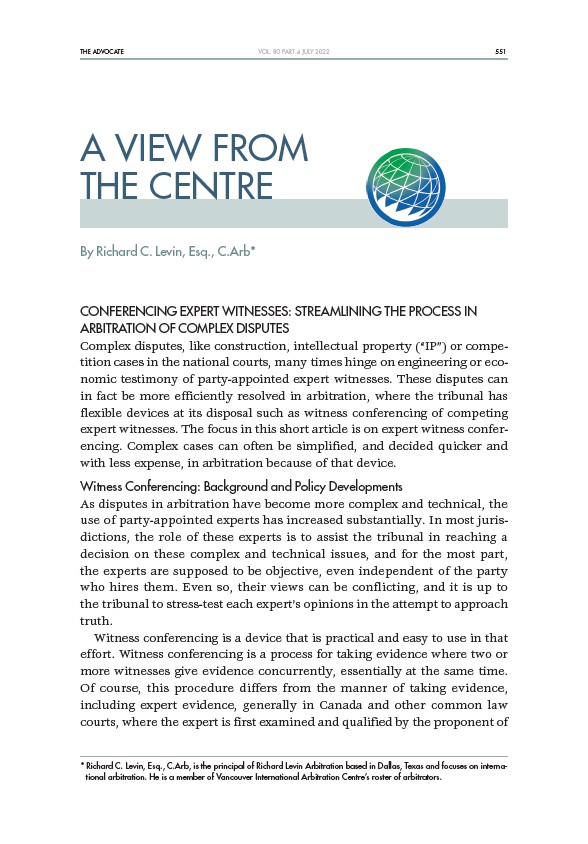
THE ADVOCATE 551
VOL. 80 PART 4 JULY 2022
A VIEW FROM
THE CENTRE
By Richard C. Levin, Esq., C.Arb*
CONFERENCING EXPERT WITNESSES: STREAMLINING THE PROCESS IN
ARBITRATION OF COMPLEX DISPUTES
Complex disputes, like construction, intellectual property (“IP”) or competition
cases in the national courts, many times hinge on engineering or economic
testimony of party-appointed expert witnesses. These disputes can
in fact be more efficiently resolved in arbitration, where the tribunal has
flexible devices at its disposal such as witness conferencing of competing
expert witnesses. The focus in this short article is on expert witness conferencing.
Complex cases can often be simplified, and decided quicker and
with less expense, in arbitration because of that device.
Witness Conferencing: Background and Policy Developments
As disputes in arbitration have become more complex and technical, the
use of party-appointed experts has increased substantially. In most jurisdictions,
the role of these experts is to assist the tribunal in reaching a
decision on these complex and technical issues, and for the most part,
the experts are supposed to be objective, even independent of the party
who hires them. Even so, their views can be conflicting, and it is up to
the tribunal to stress-test each expert’s opinions in the attempt to approach
truth.
Witness conferencing is a device that is practical and easy to use in that
effort. Witness conferencing is a process for taking evidence where two or
more witnesses give evidence concurrently, essentially at the same time.
Of course, this procedure differs from the manner of taking evidence,
including expert evidence, generally in Canada and other common law
courts, where the expert is first examined and qualified by the proponent of
* Richard C. Levin, Esq., C.Arb, is the principal of Richard Levin Arbitration based in Dallas, Texas and focuses on international
arbitration. He is a member of Vancouver International Arbitration Centre’s roster of arbitrators.